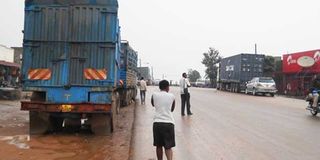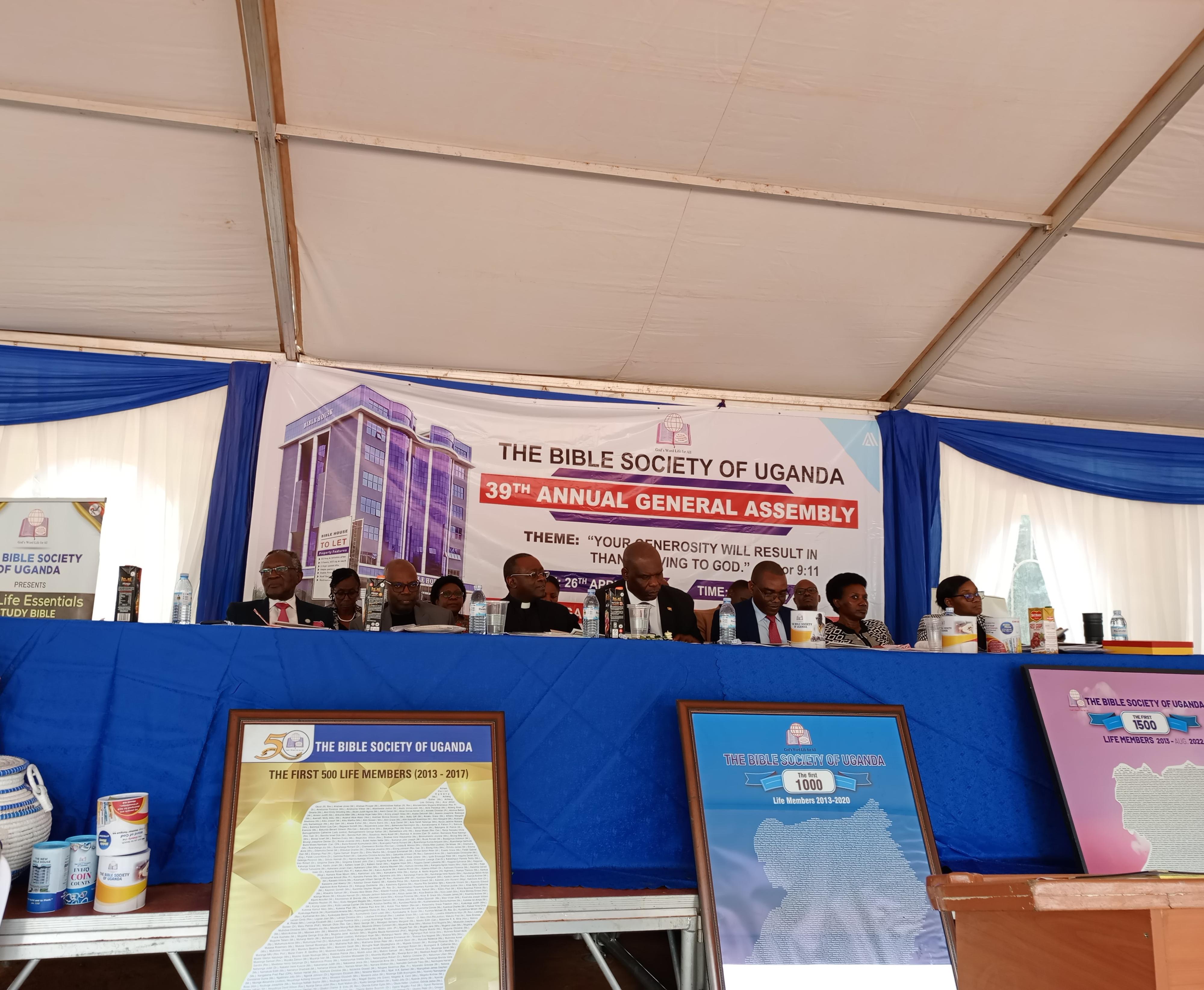Lyantonde: Town in a hub of hospitality

Trucks parked on the Lyantonde highway. Lyantonde town is a stop-over for most long distance truck drivers. Photo by Michael J. Ssali
What you need to know:
Majority of the population in Lyantonde are into hospitality business.
Lyantonde Town could well be as old as the highway on which it stands. The highway connects Rwanda, Burundi and DR Congo to the East African port of Mombasa through Uganda and Kenya.
No one appeared to know the early history of the town when I visited it on World Aids Day (December 1, 2011).
James Musoke, 70, who has been a tailor in Lyantonde for about 50 years, links its history to its geographical closeness to Nyekongorera, a large sparsely populated chunk of land through which the highway passes, perhaps 30 or 50 miles between Lyantonde and Mbarara Town.
“The area was mainly bush, scarcely populated, and it had dangerous wild animals,” he said.
“Truck drivers feared that robbers could take advantage of the darkness and the road’s loneliness to attack them. So whenever they go to Lyantonde in the evening, they consider it unsafe to proceed. They often choose to park the trucks along the road for the night and proceed with the journey the following day.”
Musoke went on to explain that the local residents in Lyantonde quickly noticed the need for accommodation facilities for the truck drivers.
The drivers also needed food and some alcohol. Some of the local people invested in lodgings and restaurants while others built bars to serve alcohol to the travellers. Musoke’s story is verified by Herbert Rwensheshe,the councillor who also serves as secretary for production.
“Most economic activities in this town actually rotate around the hospitality industry, mainly bars, restaurants and lodges.” He estimates the town’s population to be about 20,000, including those in transit.
“At any given time, we have people staying for a while and going away,” he says. “We count them too as part of that figure.”
Gradually, Lyantonde became the place for local farmers to sell their produce. With the money earned, they would return home with such items as soap, sugar, and other household requirements. Grocery shops were then opened, carpenters and other craftsmen set up workshops. Today, Lyantonde has schools, health facilities, commercial banks and microfinance institutions. It is a busy town.
Town with no love
The rules are a bit different in this beautiful town. Here, words such as love don’t probably mean exactly the same as they do in your home area.
The town was mainly built to provide hospitality. Most of the ladies you will find patronising such bars as Kkaanya, Colidor, Jumbo or ABC are really full of love.
Within about 30 minutes or just the time it takes you to finish your first bottle of beer, it is possible to get a serious lover, willing to spend a night with you. It is always a case of love at first sight. She need not know your name or where you come from.
A very important requirement is that you should have some money and be willing to donate a bit of it to your newly found love. Jealousy is forbidden and if you return from Burundi or wherever you went and find your lover of last week with another lover and she looks at you like a stranger, please don’t disturb her peace. In this place love is for hire.
All types of alcohol are served, especially in the joints of Koki Zone. Don’t expect to be arrested for drinking illicit drink because even some members of the security forces that would arrest you sit there and imbibe the stuff with the rest of the people.
It is said that here, for as little as Shs2,000, a man may hire a lover for at least a few minutes or even an hour. Has anyone been arrested by the police in connection with prostitution?
“No,” Rwensheshe tells me. “It is a problem that is difficult to get rid of. In these matters things take place secretly and it is not easy to produce evidence in the courts of law that someone gave money to a woman in exchange for sex.”
An important observation for any journalist walking through the place on World Aids Day was the presence nearly everywhere, particularly in the corridors between buildings, of used condoms and empty condom packets.
The thing about much of this town is that to pass urine you need not strictly look for a urinal.
Anywhere behind the buildings or between them, as long as people are not watching, you can ease yourself. But it offers you an excellent opportunity to discover to which extent condom use has gone.
Many more used condoms could have been disposed off in the recommended way thrown into pit latrines. At least there is some awareness of sexually transmitted diseases.
Economic empowerment
Salama Shield Foundation , an anti-Aids research project, works towards financially empowering the women in Lyantonde by providing them with small interest free loans to run small enterprises with a view to dissuade them from risky behaviour lifestyles.
“We encourage condom use,” Kawere says, “and we campaign for voluntary HIV testing.”
She says today December 14 2011, SSF will hold the ground breaking ceremony for the construction of a multimillion US dollar vocational school to provide free educational skills to vulnerable children not only from Lyantonde but even beyond.




